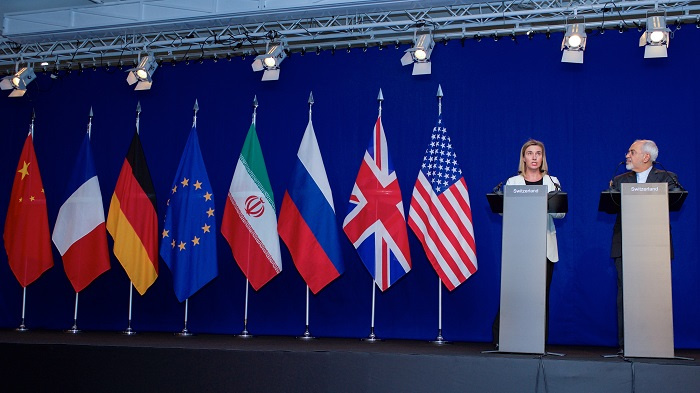Iran nuclear deal vital for global non-proliferation regime

The countdown has begun to the day US President Donald Trump is expected to announce its decision on the July 2015 Iran nuclear deal, while Tehran says the country is united and ready to react appropriately.
Trump, within the next 20 days, will decide on removal of US unilateral sanctions against Iran or keeping them for another three-month period.
Over the past 18 months, Trump who has described Iran's nuclear deal, known as the Joint Comprehensive Plan of Action (JCPOA), as the worst deal signed ever by Washington, vowing to kill it, has been leading a media campaign to undermine the international accord.
Now with Trump's decision expected to be announced on May 12, the European countries seem to be already mired in many ifs and buts regarding the fate of the JCPOA.
But as far as Iran is concerned, the country has announced its readiness to deal with any decisions by the United States which is just one of the signatories of the P5+1 group of nations, along with Russia, China, Britain, France and Germany.
Regardless of what Trump's decision would be and all the uncertainties surrounding the issue -- as the US allies also acknowledge that Trump tends to be an unpredictable man -- what remains to be certain is that Iran is ready for any decisions and scenarios, Iranian President's Political Deputy Majid Takht-e Ravanchi emphasized recently.
If the US official make a wrong decision [on the JCPOA] they will regret their decision when they see Iran's reaction, Takht-e Ravanchi warned.
He said that the nuclear deal between Tehran and P5+1 is a balanced equation.
The balance of this equation should not be disturbed and if one of the parties involved in the deal decides to leave the JCPOA, its balance will be disturbed despite all the vows made by other parties involved in the deal that they will stay committed to it, he added.
To Iran, such a unilateral move is senseless and futile, Takht-e Ravanchi cautioned.
The Iranian President's Political Deputy also said that the US president is the one who will suffer the consequences of a wrong decision.
It is him [Trump] that should pay the price and face up to the consequences, he said.
If Trump decides to withdraw from the JCPOA, he should pay the price for such an action and it will be a heavy price, he said.
On the other hand, as appeared in the words of Ali Akbar Salehi Head of Atomic Energy Organization of Iran, the country's army of nuclear experts is on alert to respond appropriately to any decision by Trump and his team.
We hope there will be no need for taking technical decisions by Iran, but we are prepared to an extent that our reaction will leave with astonishment the other party, Salehi warned.
He said that Iran is ready to resume its 20-percent enrichment activities just within four days.
In fact, Iran is quite prepared, both technically and politically, to deal with different approaches the US will probably adopt regarding the JCPOA and Tehran has a clear and specified plan to react against any US scenarios.
However, what remains to be important is the way the European Union will respond to the US decision and that how long they will stay committed to the landmark nuclear deal.
Federica Mogherini, the European Union Foreign Policy Chief, recently said preserving the Iran nuclear is vital for the EU.
'The Europeans have always made it clear, the European Union has always made it clear that for us, keeping the agreement in place is vital. It is a strategic interest for the European Union and we will stick to it,' Mogherini told reporters last week ahead of the bloc's Foreign Affairs Council meeting in Luxembourg.
By 'strategic interest' the EU top official is going to mean that staying in the nuclear deal with Iran is not going to be an attempt by the European countries to solely safeguard their economic interests. Rather, it shows that to the EU the JCPOA is a multilateral accord, producing effects beyond just economic ones.
Sure enough, repercussions of the US withdrawal from the Iran deal will be felt on both sides of the Atlantic.
Any lack of commitment to the JCPOA by other parties is going to be costly and Iran believes it is not the only party that should pay the price.
Iran has always been committed to the nuclear deal and the International Atomic Energy Agency (IAEA) certified this ten times in its reports.
The JCPOA is a multilateral international accord made after extensive tough talks and it is endorsed by Resolution 2231 of the United Nations.
The Iran nuclear deal played an undeniable role in helping the global non-proliferation regime and it should not be looked at just from an economic perspective.
Now all eyes are on the wise people on both sides of the Atlantic to see whether they follow Trump and his stubborn approach toward the international agreement or they choose a different path leading towards saving one of the key global deals on nuclear non-proliferation.
Abridged and translated by: Reza Bahar
Source: IRNA

